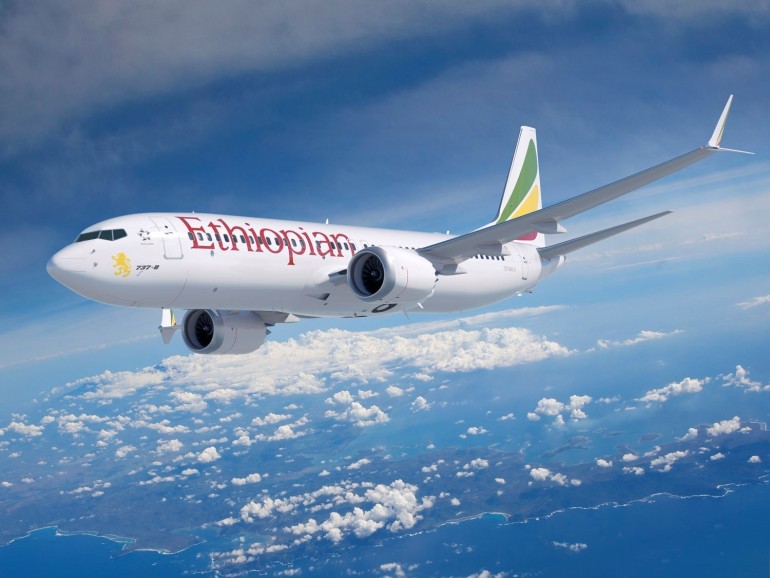Sponsored Listings:
Boeing has insisted safety is at the core of its activities in response to the preliminary report into the crash of Ethiopian Airlines flight 302.
The report, published by the by the Ethiopian Accident Investigation Bureau, suggested the Boeing 737 Max involved nosedived several times before it came down last month.
All 157 people on board were killed during the incident shortly after take-off.
Pilots “repeatedly” followed procedures recommended by Boeing before the crash, according to the first official report into the disaster.
The report contains flight data recorder information indicating the plane had an erroneous angle of attack sensor input that activated the manoeuvring characteristics augmentation system (MCAS) function during the flight.
The is similar to what has been reported following the crash of Lion Air flight 610 in October last year, also involving a Boeing 737 Max.
Responding to the preliminary report, Boeing Commercial Airplanes president, Kevin McAllister, said: “Understanding the circumstances that contributed to this accident is critical to ensuring safe flight.
“We will carefully review the board’s preliminary report, and will take any and all additional steps necessary to enhance the safety of our aircraft.”
In an attempt to ensure unintended MCAS activation will not occur again, Boeing has developed a software update for the system.
It will be matched with a “comprehensive pilot training and supplementary education program” for the 737 Max.
The update adds additional layers of protection and will prevent erroneous data from causing MCAS activation, Boeing said.
Flight crews will now have the ability to override the MCAS and manually control the airplane.
Boeing is currently working with the FAA to gain certification for the update and program.
In a separate address Boeing chief executive, Dennis Muilenburg, said Boeing would not rush the update.
“We are taking a comprehensive, disciplined approach, and taking the time, to get the software update right.
“We are nearing completion and anticipate its certification and implementation on the 737 Max fleet worldwide in the weeks ahead.
“We regret the impact the grounding has had on our airline customers and their passengers.”
He added: “This update, along with the associated training and additional educational materials that pilots want in the wake of these accidents, will eliminate the possibility of unintended manoeuvring characteristics augmentation system activation and prevent an MCAS-related accident from ever happening again.
“We remain confident in the fundamental safety of the 737 Max.
“All who fly on it – the passengers, flight attendants and pilots, including our own families and friends – deserve our best.
“When the MAX returns to the skies with the software changes to the MCAS function, it will be among the safest airplanes ever to fly.”
Source: breakingtravelnews.com










